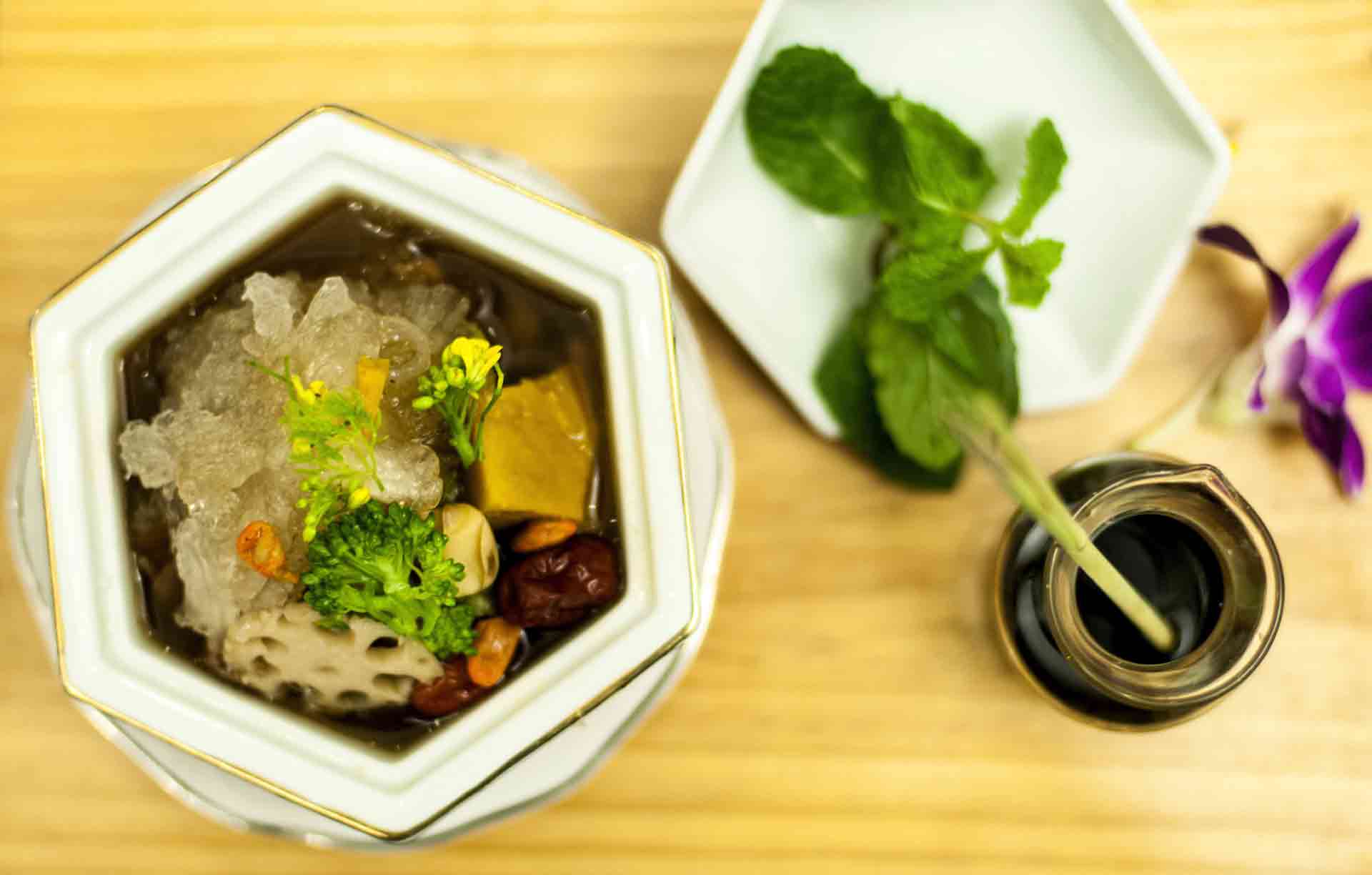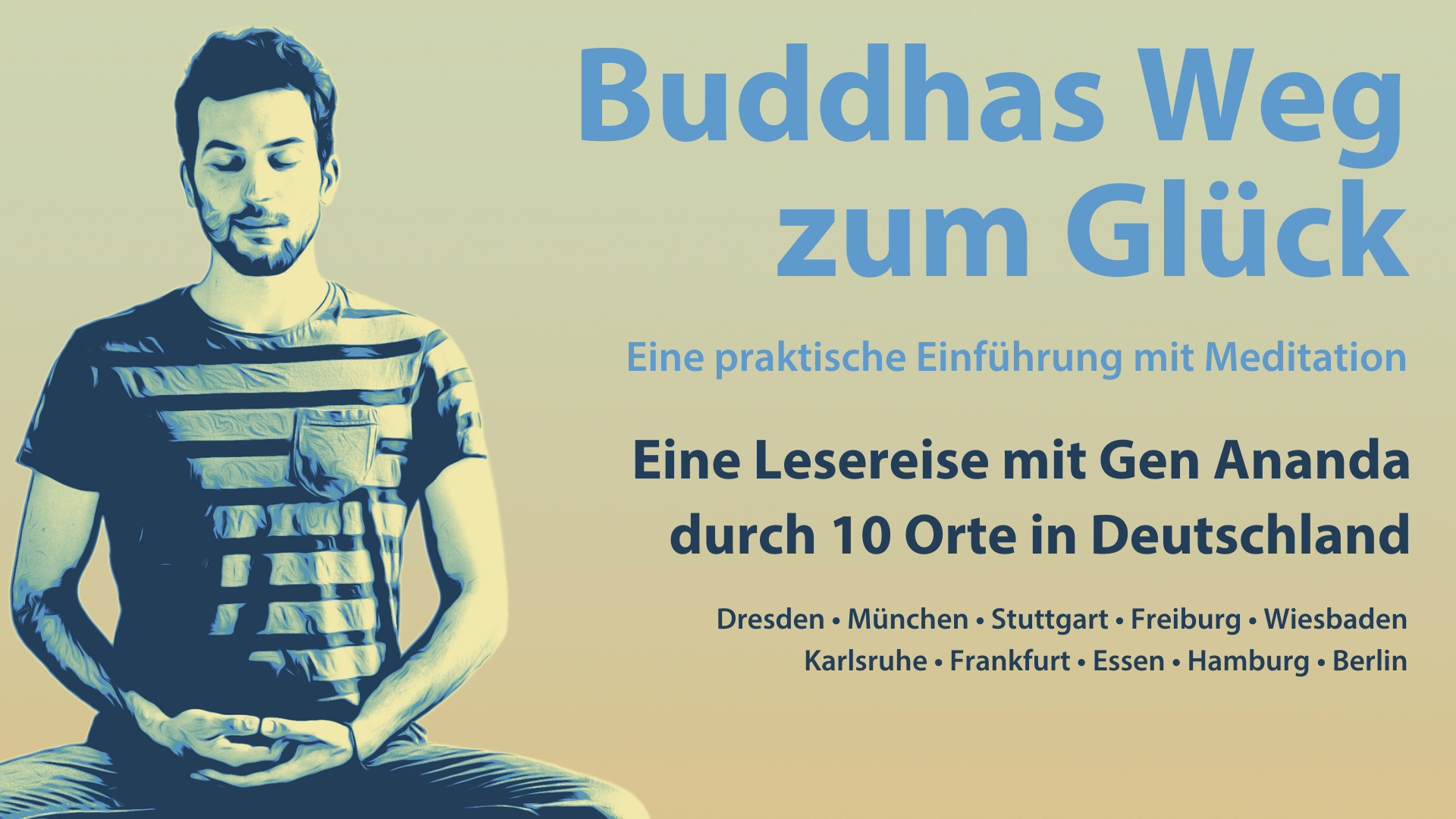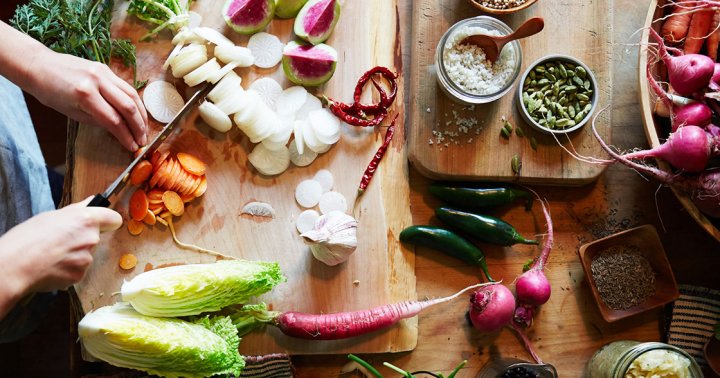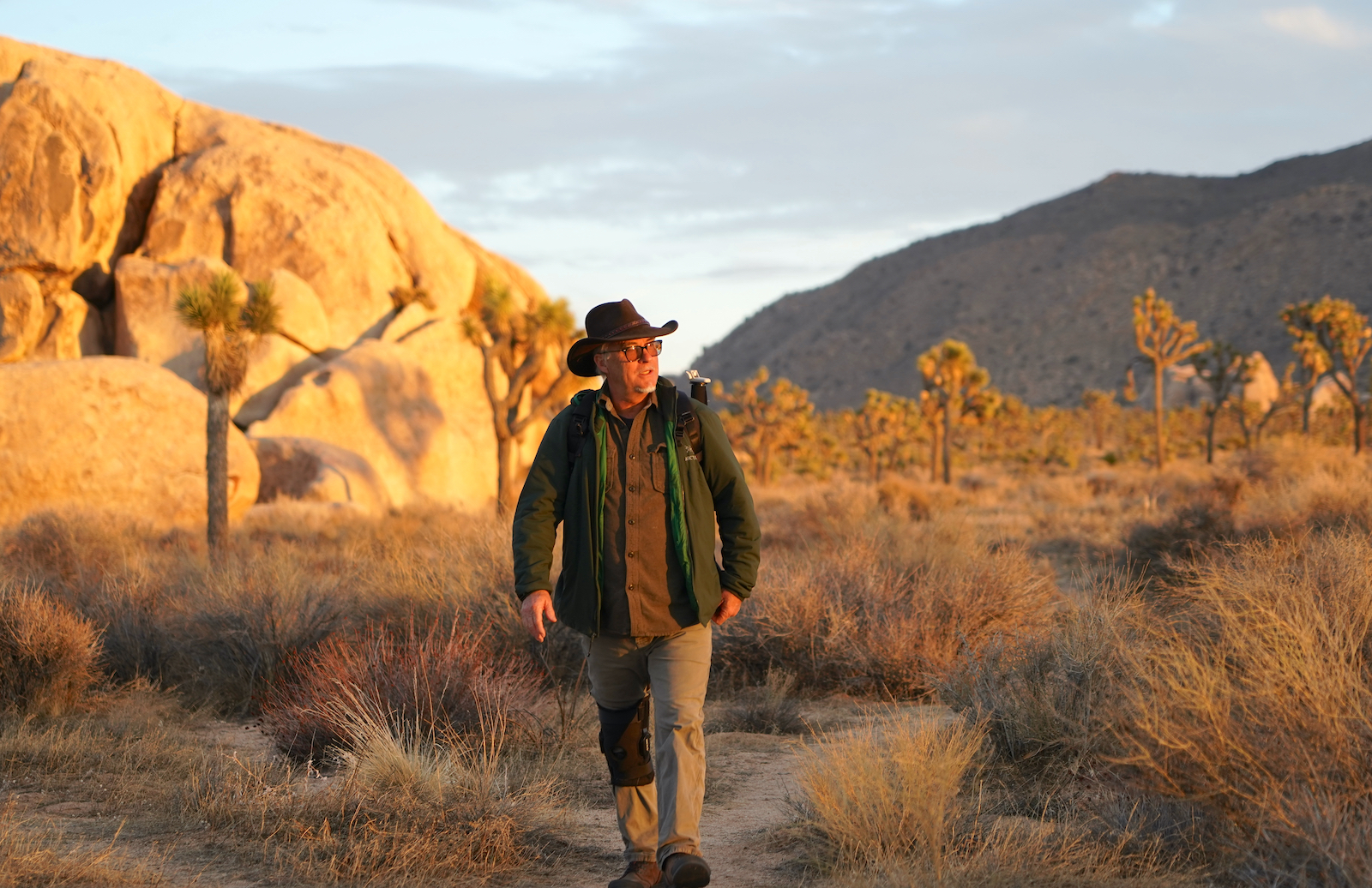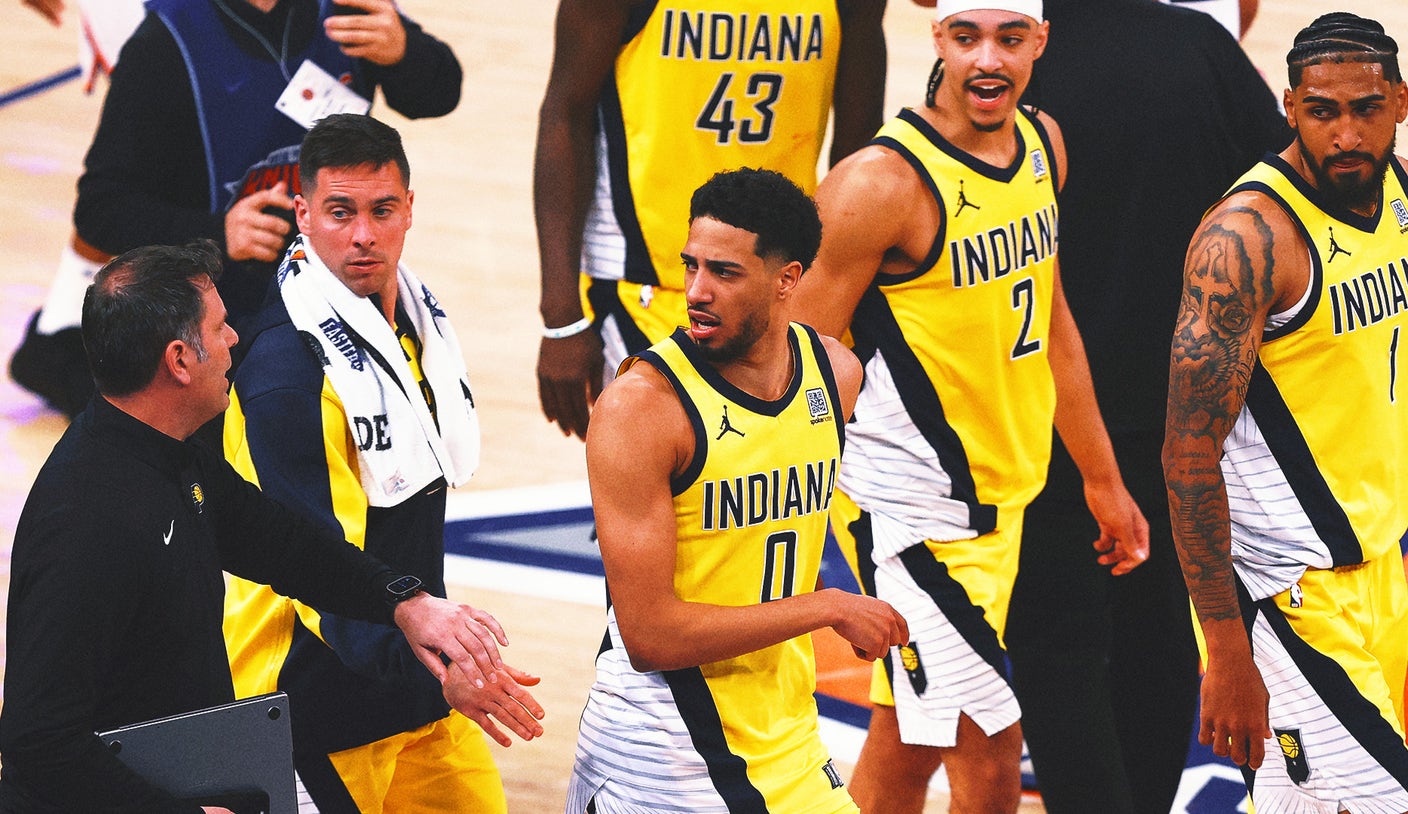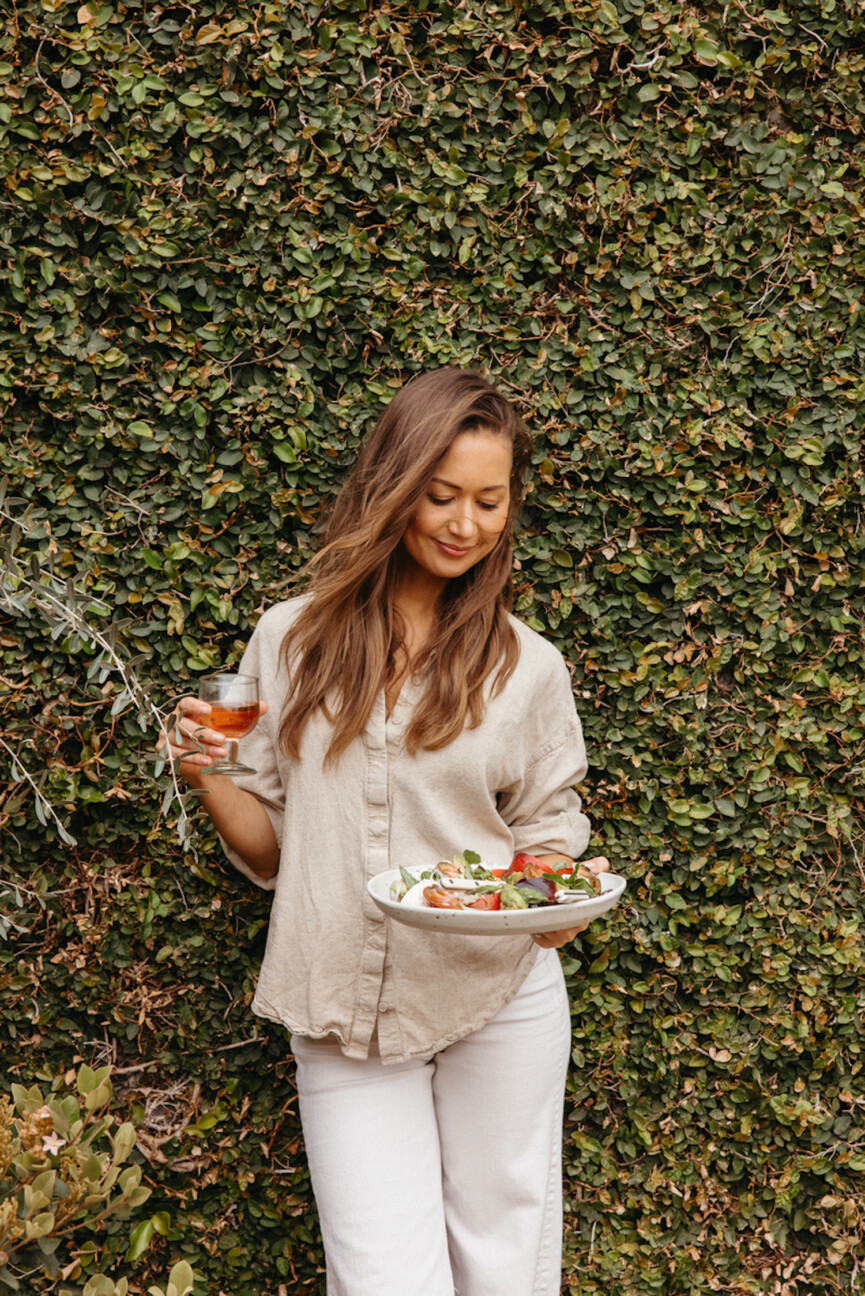Good Food: A Q&A with Chef Bryant Terry
How can all communities thrive? Bryant Terry on the importance of cooking mindfully. The post Good Food: A Q&A with Chef Bryant Terry appeared first on Lion’s Roar.
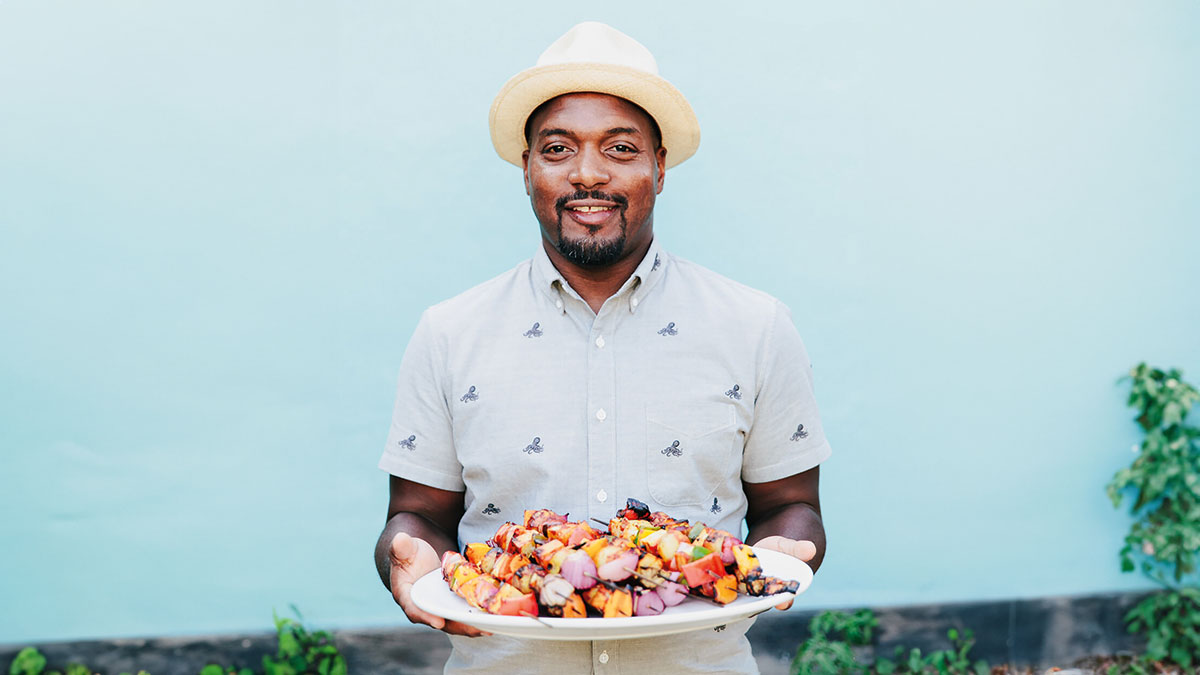
Lion’s Roar: What drew you to Buddhist practice?
Bryant Terry: Daily sitting practice helped me feel more connected to something greater than myself.
In 2005, I spent a week at Deer Park, Thich Nhat Hanh’s monastery in Escondido, California. The woman who is now my wife and I were at the monastery at the same time, both sinking into a deeper practice. Being able to support each other in developing sitting practice had a big impact on both of us. Being there together—witnessing each other being vulnerable, deepening our practice, going through whatever we were going through—helped us see each other in a way we would not have if we were just going out on dates and putting on our best face every time we saw each other.
What got you started on cooking?
I grew up in a family with roots in the rural South. Growing, cooking, and eating local, seasonal, sustainable food was just a part of our family’s ethos. That provided a foundation for my interest in cooking, but it was wanting to be a part of the food justice movement that got me moving.
“Cooking is just one more opportunity to weave mindfulness into my life—along with showering, brushing my teeth, making my bed.”
I went to culinary school with the express goal of getting skills so I could do the work. After that, I founded b-healthy, a five-year initiative that used cooking as a way to politicize young people.
Do you see cooking as a mindfulness practice?
Definitely, which is part of what makes it a challenge. For me, mindful cooking starts with being very attentive to the ingredients I’m using—as much as possible sourcing ingredients locally and making most things from scratch, including toasting the spices and grinding them as opposed to using pre-ground spices. It means taking my time and being mindful when I’m washing, cutting, and sautéing vegetables—being really present with the whole process, not letting my mind wander. This is the only thing that’s happening right now.
The shadow side of that level of mindfulness is that it’s very labor intensive. I cannot rush and cook, which makes it a much more protracted process than if I were taking shortcuts to get the meal on the table. Even though it’s hard work and I may not be as passionate as I was in the early days, there are times when I get lots of joy making a meal for my family.
A couple of days ago I made a dish—slow cooking gigante white beans in a tomato-based sauce and then baking them—that we’ve been eating for days. I made the stock from scratch. I soaked the beans. I went to the farmer’s market to get alliums and celery, and I found some really good stewed tomatoes that one stand had from last season. So good!
Cooking is just one more opportunity to weave mindfulness into my life—along with showering, brushing my teeth, making my bed. This keeps me disciplined and honest. I tell my daughters, how you do anything is how you do everything.
Why is community important?
Intentional community has always been paramount to me. It’s a place where practice and politics come together. Capitalism so often makes us feel we have to do things individually, yet we will get much further if we address our societal ills and structural barriers in community.
We can feed ourselves better in community, whether it’s growing food together or cooking together—especially if we’re doing things in bulk that we can share. We can build community around the table, connecting and exchanging and getting to know each other. That’s been a thread throughout my work—how we can lean on each other to push back against our industrialized food system and other systems designed to exploit and harm us. We can’t do it alone.
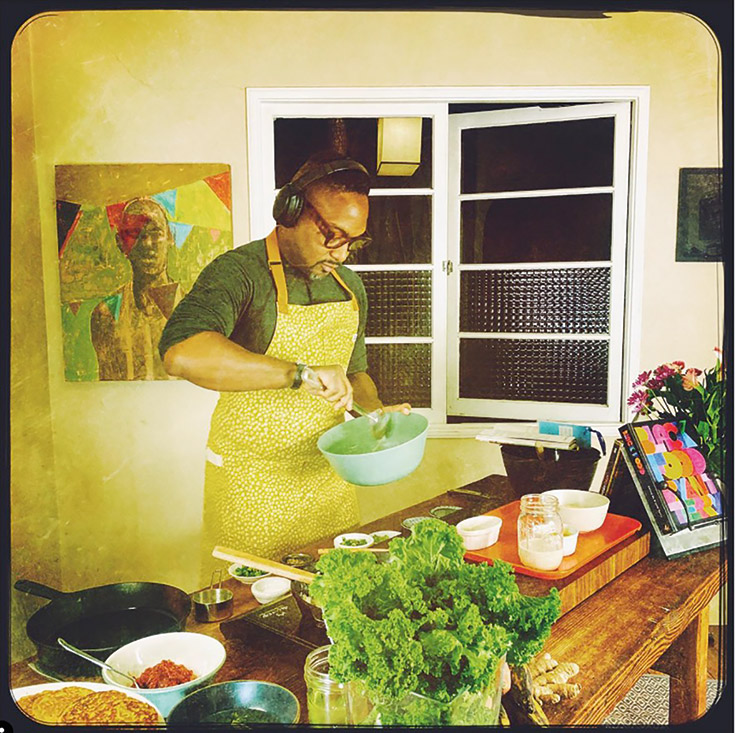 Photo via Instagram @bryantterry
Photo via Instagram @bryantterry Why do you say that if we can fix the problems in communities where people are living at the furthest margins, there will be a ripple effect whereby others are positively impacted?
Lack of food access—as a result of economic, geographic, physical barriers to obtaining healthy, fresh, affordable food—is simply one indicator of material deprivation.
Most often the communities dealing with food apartheid are also the ones contending with environmental racism, where there are industries adjacent to or inside the communities poisoning the air, water, or soil; crumbling infrastructure; segregated, underfunded schools; overpolicing, and so on.
When communities like these are made whole, that’s a positive step toward making all communities whole. It’s not the trickle-down effect; it’s the trickle-up effect.
The tendency to pathologize people in marginalized communities fails to recognize that structural inequalities have created this reality. As much as some people may want to eat more healthfully, it’s challenging for them to get fresh food. As much as people might want to be more physically active, it can be hard to find safe green space and adequate recreational facilities.
Knowing there are so many forces bigger than individuals’ desire to see a different reality, we need to organize, strategize, and work toward change. All hands lifting makes the load lighter. What keeps me hopeful is that I’ve seen so many shifts and so much growth over the past two decades that I know we’re moving the needle. We just have to continue.
How do you show people that they can make healthy food that is also delicious?
Modeling. People have ideas around eating healthfully that may not be fully accurate, so I’m hesitant to use that phrase because it can mean so many things for so many different communities and people. I’m focused on people disinvesting from the industrialized, standard American diet. I like to show people that food made from scratch, devoid of animal products, can be delicious and satisfying.
When people have those experiences, it makes them curious. It allows them to understand there can be a different reality, and it’s a lot easier than they might imagine. That’s why cookbooks have been such an important part of my overall approach. They give people the blueprint for fundamental skills they need to take care of themselves and their families.
Get three delicious vegan recipes by Bryant Terry here.

Bryant Terry is a chef, educator, and author renowned for his activism to create a healthy, just, and sustainable food system. Bryant’s fourth book, Afro Vegan was published by Ten Speed Press/Random House April 2014. Just 2 months after publication, Afro-Vegan was named by Amazon.com one of the best cookbooks of 2014. In December it was nominated for an NAACP Image Award in the Outstanding Literary Work category. He lives in Oakland, CA with his wife, Jidan Koon, and their two daughters.

 AbJimroe
AbJimroe 








